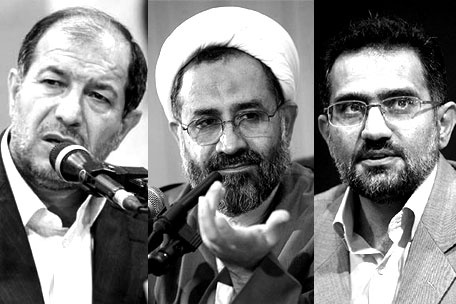Three Ministers in EU Black List: Political sanctions in the pipeline

The European Union has imposed new sanctions against Iran since October 11th, while the US follows a new wave of anti-Iran propaganda after the alleged Iranian assassination plot targeting the Saudi ambassador to Washington. IRD reviews the story in an interview with Dr. Shamsoddin Khareqani:
IRD: What do the EU’s new sanctions include and why are they important?
SK: Unlike the previous sanctions, which included both political and economic aspects, the new sanctions are just imposing a ban on certain Iranian figures visiting the EU. It bears significance that the EU did not consider economic sanctions and instead, for the first time, targeted three key ministers. When [former head of Iran's Organization of Atomic Energy] Ali-Akbar Salehi was appointed as the minister of foreign affairs, EU removed his name from the black list due to his new position, which was a positive move. But now the EU has taken a very important –and effective- measure by listing three key ministers, one of them [Seyyed Mohammad Hosseini, Minister of Culture] has a cultural background. By this action, the EU is actually limiting ministerial-level cultural, political and border interactions with Iran. This can deeply affect Iran, as it is not a common measure to impose sanction against ministers.
IRD: The Iranian Mahan Airline is also facing sanctions, although it belongs to private sector. What is the purpose of the sanction and how is it legal?
SK: As you may know, the US has already sanctioned Mahan, accusing it of carrying members of the IRGC Quds Corps linked to the alleged assassination plot. The Europeans are pondering whether to put sanction on the airline or not. We have to wait and see if the sanctions include spare parts and fuel or they cover more items, since as far as I know the EU has not announced a full sanction against Mahan. Mahan Airline is a private company, though it enjoys overnmental facilities. The EU is slowly beginning to target those companies with close relations with the government in its sanctions’ list.
IRD: Last week, the US media broadcasted news about an alleged assassination plot against the Saudi ambassador in Washington by an Iranian-American citizen. The European newspapers focused IAEA head’s latest report which addressed new details of the Iranian nuclear program and its military aspects. How do you analyze these developments? Is Europe following the US’ line?
SK: For the US, Iran has turned into a very serious and sensitive issue. Almost all the American newspapers, along with Israeli, Saudi Arabian and some of the European media are attacking Iran severely and giving advice on how to confront Iran. Most of them believe that the nature of the treatments should change. Some distort the reality and some made their tone harsher, but all agree that if the allegations come true, Iran should face a severe punishment.
Simultaneously, a meeting was hold in the US Senate between well-known members of the body and officials from the Department of State, CIA and the Department of Commerce. The session focused on Iran's life line, that is, oil production. One of the suggestions in the session was to pressurize China not to purchase the Iranian oil. Obama also made the same suggestion in his meeting with his Korean counterpart, calling the international community to mobilize against Iran. As it was claimed in the Senate meeting, Washington had contacted more than fifty countries to gain their consent to impose more extensive oil sanctions against Iran. It is no tough job to guess the name of these countries; probably most of them are European countries. Europe has proved that it accompanies the US if feels any pressure.
If those words are true and fifty countries have actually expressed their consent, it reveals that the Iranian diplomacy has made such weak a performance that any story backed up by propaganda can be easily associated with Iran. Although in the past, the situation was different and in the UN Security Council, many countries criticized the US’s decision to attack Iraq, now many of those countries tend to join Washington.
There are some worries that the EU can move towards more severe sanctions. Obama has also reiterated that all options are on the table. This indicates a shift in his viewpoint. Although it does not mean any imminent attack to Iran, but it could affect the European viewpoint and that would be a problem.
IRD: Is there any opportunity for Iran to solve the problem through diplomacy?


نظر شما :